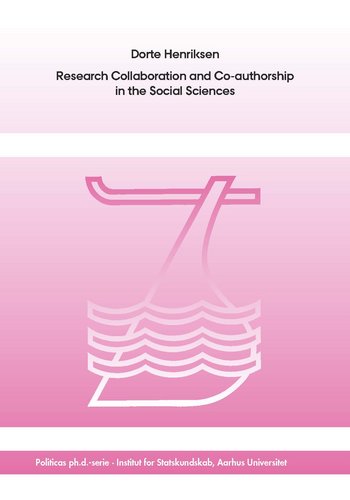Dorte Henriksen
Research Collaboration and Co-authorship in the Social Sciences

Why do social scientists collaborate and how is it reflected in co-authorship? The debate and study of (co-)authorship has been dominated by a focus on the physical and life sciences, where research collaboration is a well-established norm, and researchers rarely publish as single authors. This dissertation provides insights into the evolution of research collaboration and co-authorship in the social sciences and the factors that shape when and how collaboration and/or co-authorship occurs. It uses a mixed methods approach to examine different aspects of research collaboration and co-authorship. The dissertation shows that co-authorship has risen in most areas of the social sciences during the last 34 years, and that co-authorship is rising regardless of research approach or method. It finds various motives for collaborating and co-authoring, which to some extent overlap. Researchers collaborate to socialize and create synergy, which makes research more fun and better. However, they also do it to optimize publication productivity, which improves their career opportunities in an era of publish-or-perish. Furthermore, it shows how the rise in co-authorship and publish-or-perish culture to some extent influences the author order norms in economics and political science. The dissertation also shows that criteria for co-authorship are difficult to define, even for the individual researcher, since social scientists are trying to navigate in a world of publish-or-perish and to uphold a “high standard” for who is named as authors.
![]() Ophavsretten tilhører Politica. Materialet må ikke bruges eller distribueres i kommercielt øjemed.
Ophavsretten tilhører Politica. Materialet må ikke bruges eller distribueres i kommercielt øjemed.